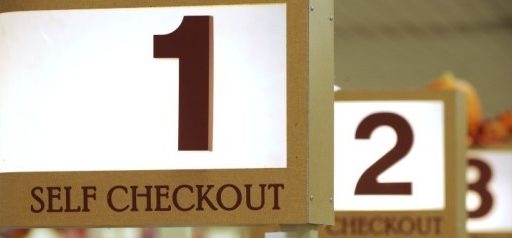The Wal-Mart Trade-Off
Rod Dreher illustrates the downside of low prices and good selection in a Dallas Morning News piece on “The Wal-Mart trade-off.”
When I was a kid growing up in a small Louisiana town, there was exactly one place to buy groceries: Gerald’s. It was properly called the Red & White, but nobody ever used the store’s proper name. Gerald was the town grocer, and the word people used to refer to the place reflected their relationship to it. It was personal, not merely commercial.
At some point — in 1975, I think — Piggly Wiggly built a shiny, big food store across the street. Gerald’s was a grocery store, but the Pig, well, that was a supermarket. The wide aisles, the bright lighting and the product selection dazzled the town. My family was tempted, but we remained loyal to Gerald.
For a while, that is. The day came when Gerald didn’t have something my mom needed. Maybe the Pig did? We had to go see. I remember the sense of violation that came with crossing the street to shop at the new store. We all felt it. Mama even took the long way around in her car, entering the Pig parking lot from the far side, decreasing the chance that Gerald would see her if he came out to collect shopping carts.
But once that line of betrayal was crossed, it became easier to do it again. And again. Finally, like everybody else in town, we shopped without shame at the Pig, though Mama, in her charity, tried to find whatever she could at Gerald’s first. In time, though, Gerald’s business declined, and he ultimately gave up and went to work at the paper mill. People shopped at the impersonal supermarket for years, but now many of them drive over to the next town to buy groceries at the Wal-Mart Supercenter, where the aisles are wider, the lighting brighter and the product selection more dazzling.
With them go the tax dollars that ought to be supporting my hometown but aren’t. More important, with them also go the last vestiges of an old and humane way of trading, one that saw commerce primarily in terms of relationships. The thought of Mama feeling ashamed to shop where the prices and selection were better at the expense of her felt duty to her friend Gerald strikes me as antique in this age of the Almighty Consumer.
Few of us, if pressed, would wish to return to the era of circumscribed choice, consumer or otherwise. We have come to think of widespread and expanding choices in every sphere of life as a sovereign personal right. I am glad that I am no longer pressured to live by the religion of my parents (in fact, I now practice another). I am pleased that I shop at three supermarkets in my part of town, as well as the Dallas Farmers Market, searching out the tastiest food at the best price. All this improves the quality of my life.
But there’s a trade-off. Alan Ehrenhalt, in The Lost City, his book about 1950s Chicago, notes that while most people wouldn’t want to go back to the constrictions of that era, many of us do mourn it. “We talk nostalgically of the loyalties and lasting relationships that characterized those days,” he writes. Mom-and-pop shopkeepers. Neighborliness and trust. A sense of community.
Of course, it’s not just box stores and impersonal chains that have weakened that sense of community. Many of us move from town to town, even state to state, several times in our lives. Cable television, VCRs, DVDs, and TiVo have made it far more convenient to entertain ourselves in the comforts of our own homes. Then there’s the Internet.
As a society, most of the economic choices we’ve made over the last few decades have been in the direction of isolation and anonymity. The upside, though, is that people in even the remotest areas now have almost all the goods and services of big city dwellers available to them. With the Internet, we also have the ability to form huge networks of people with similar interests.






I totally agree with your last statement. “With the Internet, we also have the ability to form huge networks of people with similar interests.” The plain fact is this…The world moves on and for the most part for the better.
No Wal Mart employee has ever held a gun to my head until I shopped there and I have never been carjacked by a McDonald’s employee and forced to go through the drive through and order a Big Mac.
relatively greater anonymity (which exists MORE in cities comprised of immigrants – internal and external) than it does in small close-knit towns – can lead to greater personal freedom/expression.
small towns – in which eveyhone knows your business – can be relatively stifling.
but most importantly – as the previous commenter notes – these changes (from smaller to larger cities/stores – and mobility – are the result of FREE CHOICES folks make.
Of course, I’ve found the Internet to be one really big small town. One’s presence here is not as a face that can easily be seen and forgotten as in a big city — here you are nothing if not a voice and a personality, those things that mark you as an individual.
And it is that familiarity as an individual that is both the charm and the curse of small town life.
Woolworth’s and Kresge’s had the same effect when they were the stores moving in.